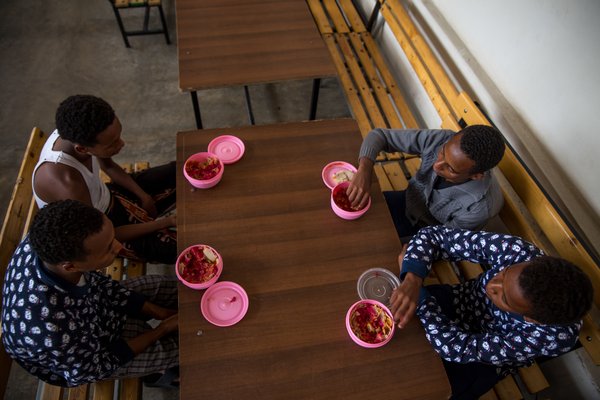
Addis Ababa, Ethiopia. An outside view of returnees as they prepare to embark on a trip back home. Photo by UNICEF Ethiopia/2013/Ayene. CC BY-NC-ND 2.0.
Abstract
Regret is a very common feeling experienced daily by individuals all over the world, migrants being no exception. Yet it is underexplored in the migration decision-making literature, likely because narratives around migration are still very much imbued with pressure to achieve ‘success’ and because migration is a material and emotional investment. Thus, acting upon regret – for instance, by returning – would imply a sizeable loss.
Research on migration decision-making has greatly expanded over the past 10 to 15 years, gradually including subjective elements such as imagination, personality traits, beliefs and values, and, crucially for this study, emotions and feelings. In this working paper, we explore regret in migration decision-making through the analysis of qualitative interviews and focus groups discussions conducted along two migration corridors within the framework of the MIDEQ project: the first one from Ethiopia to South Africa and the second one from Haiti to Brazil.
Two types of factors informing regret emerged, which we classified as ‘subjective’ and ‘material’ elements. The former centres around emotions and feelings (such as sadness, shame, or longing) and cognitive elements (narratives, imagination, reflections, or worries), while the latter refers to the tangible components of migration and migrants’ life at destination (employment or bureaucracy). Through the provision of a better and deeper understanding of regret, we aim to demystify mainstream narratives of migration as a straightforward way to success, provide relief for migrants who feel constrained in their dialogue with those who stayed behind, and to demonstrate the importance of more liberal migration policies in increasing the material and mental wellbeing of migrants.



